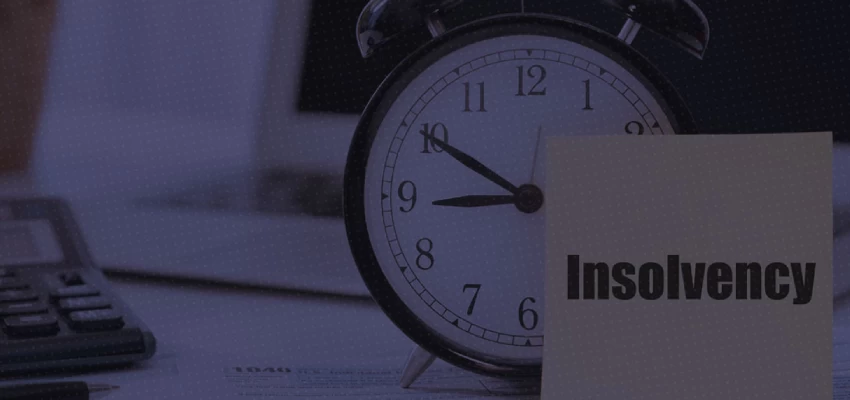Revival of the Corporate Insolvency Resolution Process (‘CIRP’) proceedings refers to the restoration of the already withdrawn CIRP by a creditor which generally happens upon the breach of the settlement agreement (‘Settlement Agreement’) pursuant to which the application for CIRP also gets withdrawn. In such circumstances, rather than filing for a fresh application for initiation of CIRP, the creditor may seek reviving of the earlier application.
The Insolvency and Bankruptcy Code 2016 (‘IBC’ or ‘Code’) and any rules or regulation framed therein do not contain any provision for seeking revival of the CIRP proceedings once it is withdrawn. Therefore, for seeking revival of the withdrawn CIRP, the inherent jurisdiction of the National Company Law Tribunal (‘NCLT’) can be invoked by filing an application under Section 60(5)(b) of the IBC, read with Rule 11 of NCLT Rules. In furtherance of the same, in the case of Vivek Bansal v. Burda Druck India Pvt. Ltd. [2020 SCC OnLine NCLAT 552], the Hon’ble National Company Law Appellate Tribunal (‘NCLAT’), while recording the Settlement Agreement between the parties, allowed the withdrawal of the application filed under Section 9 of the Code by the operational creditor. It was also held that in the event of default by the Corporate Debtor whereby it does not adhere to the terms of the Settlement Agreement as regards the payment of the outstanding instalments, the operational creditor shall be at liberty to seek revival/restoration of the CIRP proceedings before the NCLT.
Whether the liberty of the Tribunal necessary for revival of CIRP proceedings:
In the case of ICICI Bank Ltd. v. OPTO Circuits (India) Ltd. [2021 SCC OnLine NCLAT 1932] decided on 28 April 2022, the NCLAT established that in such instances wherein the corporate debtor defaults on the terms of a Settlement Agreement regarding the payment of outstanding instalments, the financial creditor has the right to seek revival or restoration of the CIRP. Herein this case, the NCLT Bangalore had rejected the application of the creditor seeking liberty to revive the application and instead had held that that the financial creditors were entitled to file fresh application for initiation of CIRP. On appeal, the NCLAT held that the order passed by the NCLT granting the liberty to file a fresh application for CIRP was erroneous and was passed without application of mind and without following the principles of natural justice. The NCLAT therefore granted the financial creditors with the liberty to revive the CIRP proceedings.
At this stage, it is necessary to analyse/understand that whether it is necessary to seek the liberty of the court to revive the CIRP proceedings or can it be sought as a matter of right by invoking the inherent jurisdiction of the NCLT. This position was explained in the case of Krishna Garg & Anr. v. Pioneers Fabricators Pvt. Ltd. Company Appeal (Ins.) Nos. 92 of 2021, wherein the Hon’ble NCLAT declined to revive the CIRP proceedings because the settlement terms were not filed, nor they were brought on record and incorporated in the order of the NCLT with liberty to revive/ restore the CIRP in the event of the corporate debtor not adhering to the terms of the settlement.
Basis the above, it appears that there exists a difference between the cases wherein the CIRP proceedings were withdrawn by mere reference of the fact of settlement and wherein the withdrawal of CIRP proceedings was materialised by bringing the Settlement Agreement on record and thereby seeking the liberty to revive the CIRP proceedings basis non-adherence of the Corporate Debtor to the Settlement Agreement.
This distinction was further reinforced in the case of SRLK Enterprises LLP v. Jalan Tran solutions India Ltd, (Company Appeal (AT) (Ins) No. 264/2021 wherein it was held that it is significant to distinguish between a simple withdrawal stating that the parties have settled and wherein the Settlement Agreement has been brought on record and had been made part of the order of withdrawal. The latter allows for the restoration of proceedings in case of default as the IBC is not a recovery proceeding where parties can repeatedly come to court due to non-payment of debt.
In the case of Pooja Finlease Ltd. v. Auto Needs (India) Pvt. Ltd. & Anr. (Company Appeal (AT) (Insolvency) No. 103 of 2022, it was held that the order by which the NCLT accepted the withdrawal of application filed for CIRP on the basis of a Settlement Agreement containing a clause that allows for revival of CIRP in case of default will be as good as NCLT granting the liberty of revival of the insolvency proceedings in case of default or non-adherence of the Settlement Agreement. When such application was approved based on the consent terms by taking on record the Settlement Agreement, it should be considered as part of the order. In a nutshell, it implies that the creditor has the authority to revive the petition in case any default in consent terms arise.
Therefore, only in cases where the Settlement Agreement is brought on record and the liberty is granted by the NCLT, the party can seek revival of the CIRP proceedings.
Whether the nature of the debt changes post the settlement of the debt:
Recently, vide an order dated 4 May 2023 passed by the NCLT, Delhi, in the case of Finsbury Global FZE v. M/s Uttam Sucrotech International Pvt. Ltd., I.A. 4081 of 2022 in C.P (I.B) No. 1013 of 2020, it was held therein that the nature of the debt changes post settlement. In this case, in order to settle the outstanding operational debt, a Settlement Agreement was entered into by the parties. The NCLT held that the moment the parties entered into the settlement agreement, the nature of debt changed from being operational debt under Section 5(21) of the Code. The debt outstanding by virtue of the Settlement Agreement loses the substratum of operational debt under the Code and merely stands to be a debt.
If the above view of the NCLT is followed, then as a natural corollary, it follows that mechanisms under IBC cannot be resorted for dues vide the Settlement Agreement, as a consequence of which neither the withdrawn CIRP proceedings can be revived nor a fresh application for CIRP can be filed for non-payment of debt agreed by the settlement agreement.
A similar view was taken by NCLT Allahabad in the case of Delhi Control Devices(P) Limited v. Fedders Electric and Engineering Ltd., 2019 SCC OnLine NCLT 8030 wherein it was held that unpaid instalments as per a Settlement Agreement cannot be treated as operational debt under Section 5(21) of the IBC as the failure or breach of the Settlement Agreement cannot be grounds for triggering the CIRP against the corporate debtor under the provisions of the IBC. The appropriate remedy may lie elsewhere and not necessarily before the Adjudicating Authority/NCLT.
However, the conclusion that the nature of debt changes after Settlement Agreement, does not appear to be a correct position of law as was already clarified by the Hon’ble NCLAT in the case of Priyal Kantilal Patel v. IREP Credit Capital (P) Ltd., 2023 SCC OnLine NCLAT 51 decided on 1 February 2023. Herein this case, the financial creditor upon the breach of the Settlement Agreement filed a fresh Section 7 application, which was opposed by the corporate debtor by claiming that the breach of consent term does not constitute a Financial Debt. In this case, the NCLAT held that the breach of consent terms in an earlier company petition does not wipe out the financial debt claimed by the financial creditor, nor does it change the nature and character of the financial debt. The Hon’ble NCLAT further held that allowing such an interpretation would grant undue advantage to the corporate debtor who breached the consent terms. This appears to be the correct understanding on the subject. If the contrary interpretation that the Settlement Agreement changes the nature of debt, is allowed, it would further result in extinguishing the remedies available under the Code to the creditors, who agreed to settle the debt and consequently withdrew the CIRP proceedings.
Therefore, a settlement agreement may not alter the nature of the original debt between the creditor and the corporate debtor.
Conclusion
To the extent that the party can seek revival of the CIRP proceedings, it can be concluded that the same is possible wherein the Settlement Agreement is brought on record and the liberty is granted by the adjudicating authority. However, to the extent of change in the nature of debt is concerned, it appears to be a grey area. In Priya Kantilal Patel (supra) as decided on 1 February 2023, the NCLAT decided that nature of debt shall not change post entering into a settlement agreement however the NCLT in Finsbury Global (supra) decided on 4 May 2023, as discussed above, held to the contrary. Going forward with the decision of NCLAT, it appears that the Settlement Agreement or its breach does not change the nature of the debt and consequently remedies under IBC shall remain available with the creditor even after withdrawal of the CIRP on the basis of a Settlement Agreement.
[Both the authors are Associates in Corporate and M&A practice at Lakshmikumaran & Sridharan Attorneys, Hyderabad]












